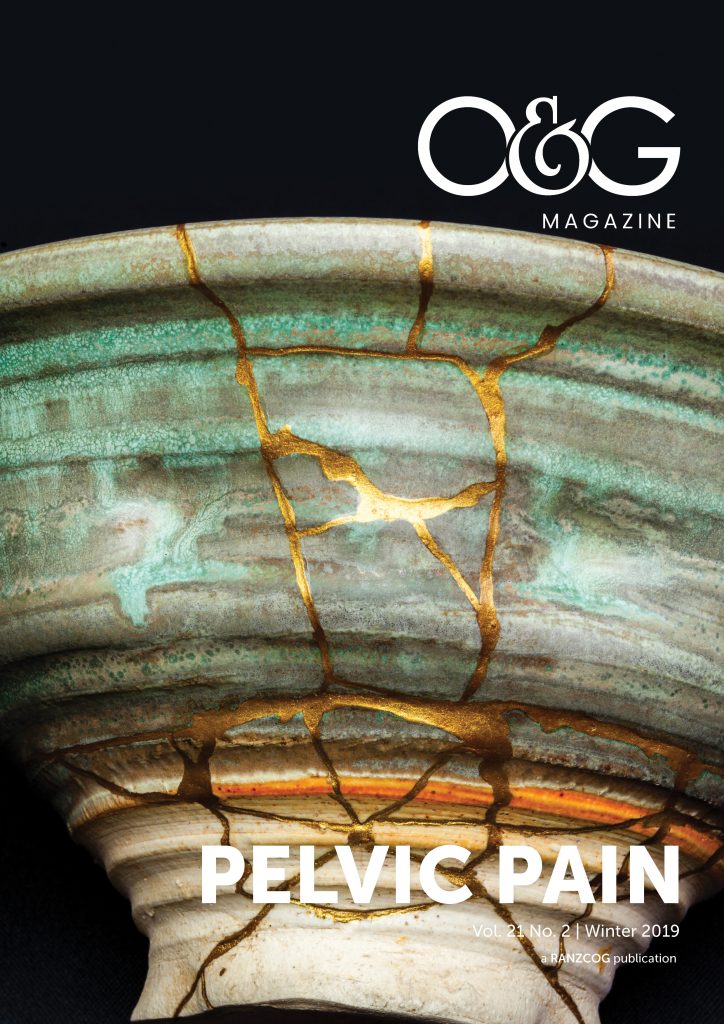Practice visits are an excellent form of peer review and audit. By the end of 2019, 72 Provincial Fellows Practice Visits will have been held in Australia over eight years.
Background and funding
RANZCOG Practice Visits commenced in New Zealand many years ago and have become commonplace there. They are looked upon favourably by the Medical Board of New Zealand.
Based upon the very successful New Zealand model, Practice Visits began in Australia as a pilot project in 2005. They were championed by Dr Philip Hall and supported by the Provincial Fellows Committee and the Continuing Professional Development Committee.
The visits were initially funded via two Commonwealth Government funding programs; firstly the Support Scheme for Rural Specialists (SSRS), then by the Rural Health Continuing Education (RHCE) program. The cost of a visit to an individual is $3000. The visits now continue to operate on a partially self-funded model, with some additional support funding generated through profits from the Provincial Fellows Annual Scientific Meetings.
Currently, individuals may apply for funding support via the Support for Rural Specialists in Australia (SRSA) program. https://ruralspecialist.org.au
What is a Practice Visit?
A Practice Visit is a collegial peer review of a specialist within their work environment intended to provide detailed, in-depth professional development relevant to the context and setting of the specialist receiving the visit. It provides doctors with an opportunity to gain an understanding of their performance/competencies and allows them to compare themselves to RANZCOG standards, with the aim of improving safety and quality of care. Visits are conducted with the support of Fellow colleagues.
The visit aims to provide constructive feedback about positive aspects of practice and areas of vulnerability that could be addressed to improve patient care.
What is involved?
Before the visit takes place, the Fellow is required to complete:
- a memorandum of understanding in relation to the visit
- a practice profile questionnaire
- a self-assessment survey
- the dispersion and collection of 50 patient satisfaction questionnaires
- a logbook of the last three months of procedures
- compilation of the program for the day of the visit, including the arrangement of interview times with colleagues and obtaining patient consent for the theatre observation
During the visit the Fellow will:
- receive a one-day site visit by two visiting Fellows
- be interviewed by the two Fellows
- undergo review of clinical workload, case mix and record keeping
- be observed carrying out one major and one minor procedure in theatre
- have their practice surroundings reviewed, including equipment and processes such as OHS, record systems in public and private (both practice settings are reviewed where possible)
- have multi-source feedback involving interviews with relevant personnel such as unit managers, CEO, Director of Nursing, Director of Medical Services, RANZCOG trainees and other junior staff
- about the context of care provided within the organisation and systems issues
- receive feedback about the visit and initial findings
After the visit:
- the results of the visit will be reviewed confidentially by a Steering Committee
- the visited Fellow will be provided with a written report outlining positive aspects of their practice and areas of vulnerability with suggestions on practice improvement
What are the benefits?
Practice Visits are beneficial for both the Fellow who is being visited as well as the two visiting Fellows.
Fellows visited:
- gain valuable feedback on how their practice is progressing
- identify areas of vulnerability and reduce risk
- receive confidential reporting on performance
- a reduction in professional isolation
- earn Practice Audit & Reflection (PAR) points
Visiting Fellows:
- view how other practices operate
- gain training and development in how to conduct peer review
- earn Practice Audit & Reflection (PAR) points
What do participants think?
‘It was a very useful exercise to look at all these areas of my practice critically before the actual visit and to get organised for the actual day of the visit.’
‘The best part of receiving a visit was having an objective appraisal of my solo practice and interacting with other regional specialists.’
‘The visit forced a review of every aspect of practice – things on the ‘to do’ list for years got done.’
‘Input from visitors was very constructive and delivered with a supportive attitude.’
‘Excellent exercise – my practice and I are stronger for the experience.’
Commonwealth Qualified Privilege Scheme
Practice Visits held in Australia are currently covered under the Commonwealth Qualified Privilege Scheme allowing for free communication within this activity.
How to be involved
To be eligible for a visit, the visited Fellow must be a RANZCOG Provincial Fellow currently working in a regional, rural and/or remote area (classification RA2-5) for the past year. See www.doctorconnect.gov.au/locator for classification details.
To enquire regarding 2020 visits, please contact RANZCOG Provincial Fellows Coordinator, Ms Angie Spry, for further details:
Email: [email protected]
Phone: (03) 9412 2971
The future of Practice Visits
It is hoped that Practice Visits will continue to expand and be offered to the greater Fellowship.






Leave a Reply